Swachh Bharat Abhiyan (SBA) / Nirmal Bharat Abhiyaan (NBA)

Swachh Bharat Abhiyan (SBA) / Nirmal Bharat Abhiyan (NBA) previously called Total Sanitation Campaign is a community led total sanitation programme initiated in 1999 by Ministry of Rural Development. NBA is a comprehensive programme to ensure sanitation facilities in rural areas with the broader goal of eradicating the practice of open defecation. The scheme provides for the promotion of a range of toilet options to promote increased affordability. Strong emphasis is also placed on Information, Education and Communication (IEC). NBA is implemented in a campaign mode, taking Village Council/Gram Panchayat as the base unit.
The construction of household toilets should be undertaken by the household itself and on completion and use of the toilet; the cash payment can be given to the household
There is no mandatory design type. Individual houses choose from a menu of options for their household latrine, allowing flexibility according to requirement and financial position.
Objectives:
- Improving the general quality of life in rural areas
- Accelerating sanitation coverage in rural areas to achieve the vision of Nirmal Bharat by 2022
- Promoting sustainable sanitation facilities through awareness creation and health education in communities and Village Council/ Panchayati Raj Institutions
- Covering the remaining schools under Sarva Shiksha Abhiyan (SSA) and Anganwadi Centres in the rural areas with proper sanitation facilities and undertake proactive promotion of hygiene education and sanitary habits among students
- Encouraging cost effective and appropriate technologies for ecologically safe and sustainable sanitation
- Developing community managed environmental sanitation systems focusing on solid, liquid waste management for overall cleanliness in the rural areas
Eligibility:
- All Below Poverty Line (BPL) households
- Above Poverty Line (APL) households restricted to SCs/STs, small and marginal farmers, landless labourers with homestead, differently abled persons and women headed households.
- All houses constructed by beneficiaries under Indira Awaas Yojana (IAY) / Prime Minister Awaas Yojana-G (PMAY-G) / State rural housing schemes, which do not have toilets.
Application process & documents required
- Eligible households are identified by a committee comprising of a Block Development Officer (Village Council/Village Panchayats), Deputy Block Development Officer and Village Panchayat President.
- The list prepared by the Committee is approved by the Village Council/Authority/Gram Sabha
- There is no prescribed application format as such. However, once the family is identified by the committee and informed, the family will have to submit an application to the Village Council/Village Panchayat/GP on plain paper
Mahatma Gandhi National Rural Employeement Guarantee Scheme (MGNREGS)
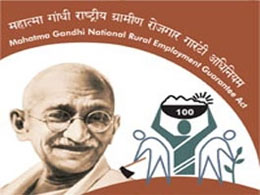
In August 2005, the Parliament of India passed the National Rural Employment Guarantee Act (NREGA), which aims at enhancing the livelihood security of people in rural areas by guaranteeing at least 100 days of wage-employment in a financial year to rural households whose adult members volunteer to do unskilled manual work. NREGA was later renamed as the "Mahatma Gandhi National Rural Employment Guarantee Act" (MGNREGA). The program started in February 2006 in the 200 most backward districts of India, and now covers the entire country since 2009.
Objectives:
The objectives of the programme include:
- Ensuring social protection for the most vulnerable living in rural India by providing employment opportunities
- Ensuring livelihood security for the poor through creation of durable assets, improved water security, soil conservation and higher land productivity
- Strengthening drought-proofing and flood management in rural India
- Aiding in the empowerment of the socially disadvantaged, especially women, Scheduled Castes (SCs) and Schedules Tribes (STs), through the processes of a rights-based legislation
- Strengthening decentralised, participatory planning through convergence of various antipoverty and livelihoods initiatives
- Deepening democracy at the grass-roots by strengthening Panchayati Raj Institutions/Equivalent (Such as Village Council, Village Development Board)
- Promoting greater transparency and accountability in governance
Eligibility:
- Every adult member of a registered household whose name appears in the Job Card shall be entitled to apply for unskilled manual work.
Application for work and demand capture
- The job card forms the basis of identification for demanding employment.
- 2. A written application seeking work is to be made to the GP or block office, stating the time and duration for which work is sought.
- 3. The Gram Panchayat (GP) will issue a dated receipt of the written application for employment, against which the guarantee of providing employment within 15 days operates.
- 4. The provision for submitting applications for work must be kept available on a continuous basis through multiple channels so designated by GPs who should empower, ward members, anganwadi workers, SHGs, village-level revenue functionaries, Common Service Centres (CSCs) and MGNREGA labour groups to receive applications for work and issue dated receipts on their behalf.
- 5. Wages are to be paid as per the State-wise Government of India (GoI) notified MGNREGA wages. Wages are also to be paid according to piece rate, as per the Schedule of Rates 2011-2012 (SoRs). Payment of wages is mandatorily done through the individual/joint bank/post office beneficiary accounts.
Targetted Public Distribution System (TPDS)
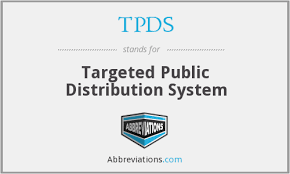
In June 1997, the Targeted Public Distribution System (TPDS) with focus on the poor was launched by Government of India. The scheme is under Ministry of Consumer Affair, Food and Public Distribution. Under the TPDS, States are required to formulate and implement foolproof arrangements for the identification of the poor for delivery of food grains and for its distribution in a transparent and accountable manner at the FPS level.
Objectives:
- The basic objective of the scheme is to provide food grains to the poor families/household on subsidised rate
Eligibility
All families/household
Entitlements of PDS
- The scale of issue of food grains (rice and/or wheat) under APL, BPL and AAY has been revised to 35 kg per family per month with effect from 1.4.2002
- In most districts covered by the project, rice is provided instead of wheat (Sometimes, States do provide kerosene and sugar too)
- The Central Issue Price (CIP) of food grains being supplied under TPDS is as under, However, there is flexibility for the State to add some additional prices/amount to the above mentioned
| Commidity | APL | BPL | AAY |
| Rice | 8.30 | 5.65 | 3.00 |
| Wheat | 6.10 | 4.15 | 2.00 |
Application process & documents required
- Application has to be submitted using a prescribed format (available in Village Authority or Council/ Panchayat office and/or nearest ration dealer/shop)
- Filled in application is to be submitted to the Inspector of Food Supply at your block
- Along with the filled in format applicant will submit- age proof certificate, residential proof certificate, Copy of BPL Card (in case of BPL applicant), Voter ID or any other ID proof, one Passport size photo etc.
Janani Shishu Suraksha Karyakram (JSSK)
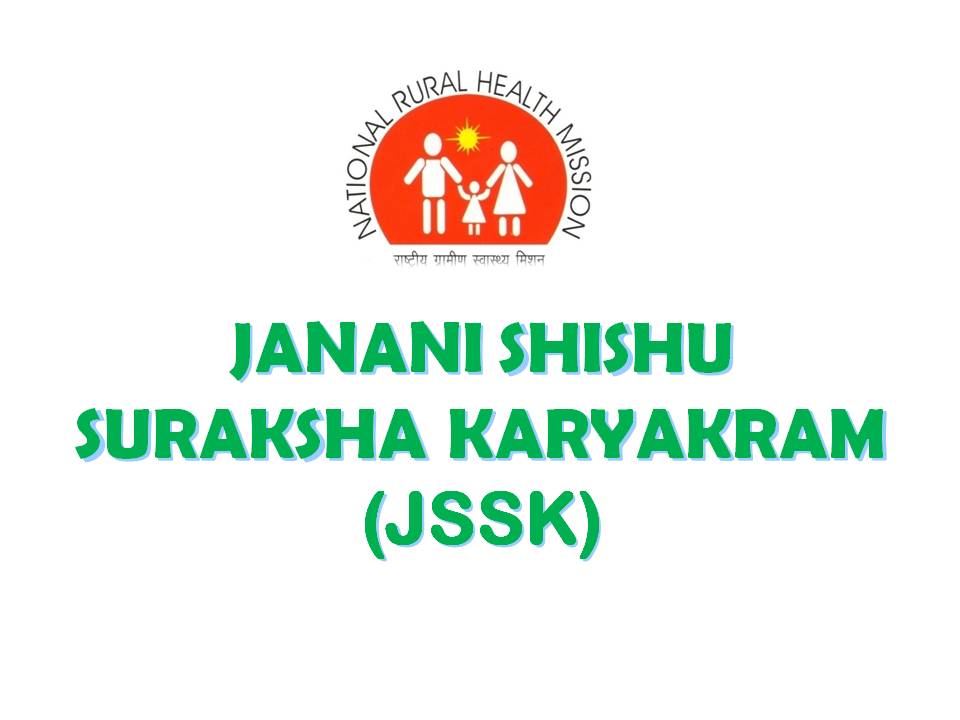
JSSK is a scheme launched in June 2011, by Ministry of Health and Family Welfare, Government of India under National Health Mission with an aim to encourage all pregnant women to deliver in Public Health Facilities.
Objectives:
- Encouraging all pregnant women to deliver in Public Health Facilities and fulfil the commitment of achieving 100 % Institutional deliveries.
- Reducing the Maternal Mortality Ratio (MMR) and Infant Mortality Rate (IMR).
Eligibility
- All pregnant women going to government health institution for delivery
- All sick infant (below 1 year of age) going to government health institution for treatment
The following are the entitlements of all pregnant women covered under the JSSK scheme:
- Free Delivery and Caesarean Section
- Free Essential Diagnostics (Blood, Urine tests and Ultra-Sonography etc.)
- Free Drugs and Consumables
- Free Diet during stay in the health institutions (up to 3 days for normal delivery & 7 days for caesarean section)
- Free Provision of Blood(on replacement basis)
- Free Transport from Home to Health Institutions
- Free Transport between facilities in case of referral
- Drop Back from Institutions to home after 48hrs stay
- Exemption from all kinds of User Charges
The following are the entitlements of all sick infants (upto 1 year) covered under the JSSK scheme:
- Free treatment
- Free drugs and consumables
- Free diagnostics
- Diet for mother during the stay of sick children in hospital for 5 days
- Free provision of blood (donors to be provided by attendants)
- Free transport from home to health institution
- Drop back from institutions to home
- Free transport between facilities in case of referral
- Drop back from institutions to home
- Exemption from all kinds of User Charges
Application process and documents required
There is no separate application process for this program. Any pregnant women who are admitted to a government/public hospital for ante-natal of delivery will be eligible for the above mentioned services and entitlements.
Integrated Child Development Scheme (ICDS)
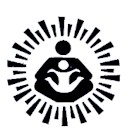
Integrated Child Development Scheme (ICDS) was established by the Ministry of Woman and Child Welfare Government of India in 1975, and has been instrumental in improving the health and wellbeing especially of mothers and children under 6 years of age by providing health and nutrition education, health services, supplementary food, and pre-school education.
Objectives:
- Improve the nutritional status of preschool children aged 0-6 years
- Laying the foundation for proper psychological, physical and social development of the child
- Reduce the incidence of mortality, morbidity, malnutrition and school drop out
- Achieving effective coordination of policy and implementation in various departments to promote child development
- Enhance the capability of the mother to look after the normal health and nutritional needs of the child through proper nutrition and health education.
Eligibility:
- Pregnant women
- Nursing Mother
- Children less than 6 years of age
- Adolescent girl (11 to 18 years of age)
Entitlements of ICDS:
- Pregnant Women: Health check-ups, supplementary nutrition, health education
- Nursing Mothers: Health check-ups, supplementary nutrition, health education
- Children less than 3 years: Supplementary nutrition, health checkups,immunisation, referral services
- Children between 3-6 years: Supplementary nutrition, health check-ups, immunisation, referral services, non formal education
- Adolescent Girls (11-18 years): Supplementary nutrition, health education
Application process & documents required
There is no application process; all the eligible persons will have access to the services mentioned above from nearest Anganwadi Centre.
Other Important Information
All these services are provided in the Anganwadi Centre which is located within the community itself. There are an Anganwadi Worker (AWW) and a Helper in the Aanganwadi Center, who provide these services. The Centre opens for 6 days per week.
Mid Day Meal Scheme (MDM)
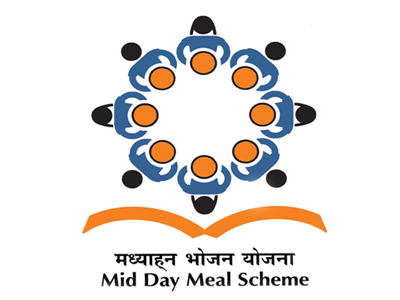
The National Programme of Nutritional Support to Primary Education (commonly known as Mid Day Meal Scheme was launched as a centrally sponsored scheme in 1995 with the objective of “Universalization of primary education by increasing enrolment, retention and attendance and simultaneously impacting on nutrition of students in primary classes.”
The main objectives of this scheme are:
- • Encouraging the universalization of primary education (classes 1-5) by improving enrolment, attendance, retention and learning levels of children especially those coming from disadvantaged backgrounds,
- Improving nutritional status of students of primary stage
- Providing nutritional support to students of primary stage in drought-affected areas during summer vacation
Eligibility
All children studying in Government/Local Body, Government Aided Schools and Schools run under Central Government
Entitlements
Every child is eligible for 100 grams of food grains at primary stage and 150 grams at upper primary stage on each school day. For children in classes I – V, a meal with a nutritional value of 450 calories and 12 grams of protein is provided. For children in upper primary classes, a meal containing of 700 calories and 20 grams of protein is provided. In addition to rice/chapattis, the meal includes pulses, vegetables depending upon local availability.
| sl. | Items | Quantity per day/Child | |
|---|---|---|---|
| Primary (ingrams) | Upper Primary (ingrams) | ||
| 1. | Food-grains | 100 | 150 |
| 2. | Pulses | 20 | 30 |
| 3. | Vegetables(leafy also) | 50 | 75 |
| 4. | oil & Fat | 5 | 7.5 |
| 5. | Salt & Condiments | As per need | As per need |
National Policy for Social Assitance (NSAP)

A National Policy for Social Assistance was introduced in 1995 by Ministry of Rural Development, Government of India and is referred as National Social Assistance Programme (NSAP).
NSAP aims to ensure minimum national standards for social assistance in addition to benefits states provide. It comprises of 5 schemes (though the project focuses on first three i.e. Pension Schemes):
- Indira Gandhi National Old Age Pension Scheme (IGNOAPS)
- Indira Gandhi National Widow Pension Scheme (IGNWPS)
- Indira Gandhi National Disability Pension Scheme (IGNDPS)
- National Family Benefit Scheme (NFBS)
- Annapurna Scheme
Eligibility:
The applicant must belong to a Below Poverty Line (BPL) family according to the criteria prescribed by the Government of India
- For IGNOAPS: Aged 60+ years
- For IGNWPS: Widow status and aged between 40-64 years. At 65 years, recipient will be automatically covered under IGNOAPS
- For IGNDPS: Aged between 18-79 years and have severe or multiple disabilities
- For NFBS: BPL family whose primary bread winner has died while the primary bread winner is aged between 18-65 years.
- The age of the applicant (male or female) should be 65 years or above. The applicant must be a destitute in the sense of having little or no regular means of substance from his/her own source of income or through financial support from family members or other sources.
Entitlements of NSAP
- Indira Gandhi National Old Age Pension Scheme (IGNOAPS): Central contribution of pension is Rs. 200/- per month per beneficiary up to 79 years and Rs.500/- per month per beneficiary aged 85+. State Governments may contribute over and above to this amount.
- Indira Gandhi National Widow Pension Scheme (IGNWPS): Central contribution of pension is Rs. 200/- per month per beneficiary. State Governments may contribute at least an equal amount.
- Indira Gandhi National Disability Pension Scheme (IGNDPS): Central contribution of pension is Rs. 200/- per month per beneficiary. State Governments may contribute over and above to this amount.
- National Family Benefit Scheme (NFBS): Central assistance is given in the form of a lump sum family benefit for households below the poverty line on the death of the primary breadwinner. The death of the primary breadwinner should have occurred while s/he is aged 18-65 years of age. The amount of central assistance under the scheme is Rs. 40000/-. The family benefit is paid to the surviving member of the household who upon the death of the primary breadwinner is determined to be the current head of household.
- • The beneficiaries are given 10 Kg. of food grains per month free of cost.
Application process & documents required
There is no particular format for application as such. It may be submitted to Village Council/Village Panchayat on a piece of plain paper mentioning the BPL card number.
Documents Required:
- IGNOAPS: Age proof certificate, BPL certificate, Photocopy of Bank or Post Office Account Passbook, One Passport Size photo.
- IGNWPS: Death Certificate of Applicant’s Husband, Age proof Certificate, BPL Certificate, Photocopy of Bank or Post Office Account Passbook, One Passport Size photo.
- IGNDPS: Attested photocopy of Disability Certificate from Social Welfare Department or Certificate of Mental/Physical Disability issues by Medical Board under the Supervision of CMO. Attested photocopy of Bank or Post Office Passbook, One Passport size Photo and Age proof Certificate, BPL Certificate.
- NFBS: Death Certificate of Primary Bread Winner, Report of Post Mortem (in case of un-natural death), BPL Certificate, Age Proof Certificate
Deen Dayal Upadhyaya Gram Jyoti Yojana / Rajiv Gandhi Grameen Vidyutikaran Yojana (RGGVY)
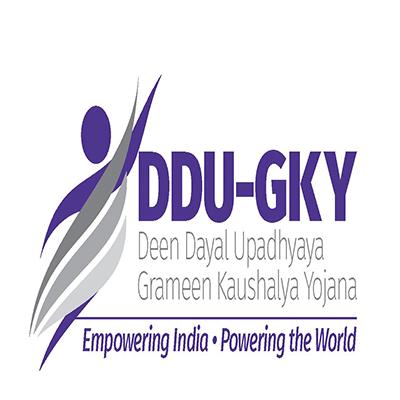
Deen Dayal Upadhyaya Gram Jyoti Yojana (DDUGJY) is a scheme approved and launched by the Government of India in 2014 with the aim to provide continuous power supply to rural India. The government plans to invest Rs. 756 billion (US$12 billion) for rural electrification under this scheme.
Objectives:
- Providing electrification to all villages
- Ensuring sufficient power to farmers and regular supply to other consumers
- Improving the sub-transmission and distribution network to improve the quality and reliability of the supply
- Metering to reduce the losses
Eligibility
- Below Poverty Line (BPL) Households are eligible for free connections.
- Above Poverty Line (APL) Households can get a connection but they must pay for their connections at the State prescribed connection charges and no subsidy is available.
Entitlements of DDUGJY:
- BPL households living in an area covered by the DDUGJY scheme are entitled to free electricity connection.
- Under the scheme, electrification of un-electrified BPL households will be financed with 100% capital subsidy amounting to Rs.2200/- per household in all rural habitations.
The entitlement is for free electric connection, but not for free usage. Therefore, the bill/usage amount is not for free of cost, and has to be paid
Application process & documents required
- For BPL households, Village Council or Authority/Gram Panchayat will approve the application.
- There is no prescribed format as such, and the applicant may submit the application to Village Council/Panchayat Office on the piece of plain paper along with photocopy of BPL card.
Rashtriya Krishi Vikas Yojana (RKVY)

To spur growth in the agriculture and allied sectors, the National Development council (NDC) observed that a special Additional Central Assistance (ACA) plans taking into account agro-climatic conditions, natural resources and technology was needed to ensure more inclusive and integrated development of agriculture and allied sector. Therefore, GoI launched Rashtriya Krishi Vikas Yojana (RKVY) in 2007.
Objectives:
- Incentivising states to increase public investment in Agriculture and allied sectors
- Providing flexibility and autonomy to states in the process of planning and implementation of Agriculture and allied sector schemes
- Ensuring the preparation of agriculture plans for states/districts based on agroclimatic conditions, availability of technology and natural resources
- Ensuring that local needs and priorities are better reflected in state agricultural plans
- Maximizing returns to farmers in Agriculture and allied sectors
- Ensuring quantifiable changes in the production and productivity of various components of Agriculture and allied sectors through a holistic approach
Eligibility:
Scheduled Castes/Scheduled Tribes, Women, Marginalised members of society, Farmers Groups
Entitlements:
- Seeds, farm mechanization assistance through custom hiring centres, soil health cards; loan; subsidy (for buying tractor and power tailor = subsidy of INR.45000/-, power reaper = subsidy of INR.40000/-, pump set = subsidy of INR.10000/- & zero tillage = subsidy of INR.15000/-)
- Other benefits: Providing new initiatives for skill development training related to agriculture, horticulture, fishery, etc through farm field schools
- Training of farmers for promotion of organic farming and assistance related to enhancement of soil health.
Application process & documents required
The services may be availed by individual farmers as well as farmers group such as SHG, user’s group. Application on a piece of plain paper may be submitted by interested individual farmer or in group to the office of the Agriculture Department at Block. Verification of document/certificate from Village Council/Village Panchayat as proof of being a farmer is mandatory. Priority is given to Schedule Caste, Schedule Tribe and Women.
(***This is a onetime benefit, and there should be no repeat beneficiary year after year under RKVY)
Indira Awaas Yojana (IAY) / Pradhan Mantri Awaas Yojana (Gramin)
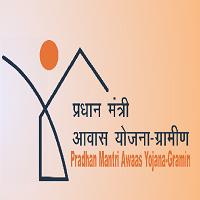
Pradhan Mantri Awaas Yojana (Gramin) (PMAY-G), restructured from Indira Awaas Yojana (IAY), is a social welfare flagship programme, created by the Indian Government, in 2016 to provide pucca house for the rural poor in India. To achieve this objective, the target number of houses to be constructed by the year 2021-2022 is, 2.95 crore.
Under the scheme, financial assistance worth Rs. 70,000 to Rs. 1.20 Lakhs in plain areas and Rs. 75,000 to 1.30 lakhs in difficult areas (high land area) is provided for construction of houses. The houses are allotted in the name of the woman or jointly between husband and wife. The construction of the houses is the sole responsibility of the beneficiary and engagement of contractors is strictly prohibited. Sanitary latrine and smokeless chullah are required to be constructed along with each PMAY-G house for which additional financial assistance is provided from SBA (Rs. 12,000) and DDUGJY respectively.
There is no mandatory design type. Options relating to locally available construction materials and building technologies will be provided to the beneficiary, along with cost implications. House design is decided by the beneficiary.
Eligibility:
- Below Poverty Line (BPL) rural households (60% Reserved for SC/ST, 15% Minority, 25% General)
- Priority is given to PTGs (Particularly Vulnerable Tribal Groups) and beneficiary families of the Forest Rights Act.
- Priority is also given to families of manual scavengers, including those rehabilitated and rehabilitated bonded labourers.
Thereafter, priority is given to:
- Female widows, divorced, women victims of atrocities and those whose husbands are missing for at least three years, and, women headed families
- Mentally challenged persons (with at least 40% disability)
- Physically challenged persons (with at least 40% disability)
- Transgender persons
- Widows and next-of-kin of members of defence/paramilitary/police forces killed in action (even if not BPL)
- Other houseless BPL families
Application process & documents required
There is no prescribe format for application of IAY, and it could be simply applied by writing on a plain paper to the Village Council or Authority President/Village Headman/Panchayat President
Following documents need to be enclosed with the application:
- Copy of “Patta” (Proof of Land Document)
- Copy of BPL Card
- Copy of Bank Account Passbook or Post Office Account Passbook
- The beneficiary must also have an account in the bank. The fund is transferred to the Bank/Post Office account of each beneficiary. Release of installments in cash to beneficiaries is not permissible under PMAY. Allotment of the PMAY house shall be jointly in the name of husband and wife except in the case of widow/unmarried/separated person.
The selection of the beneficiary is done by the Village Panchayat (Village Council or relevant/equivalent local government body) based on the eligibility criteria mentioned above.